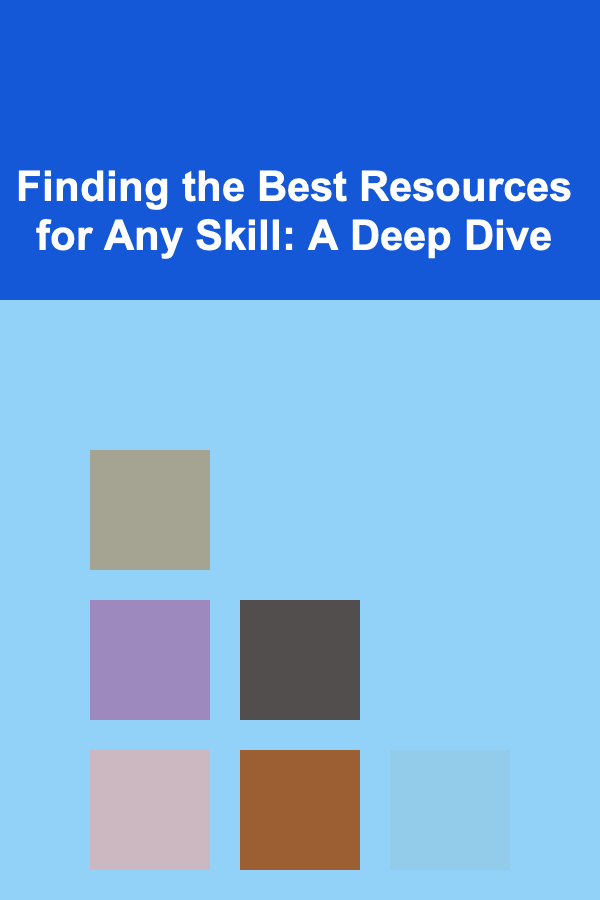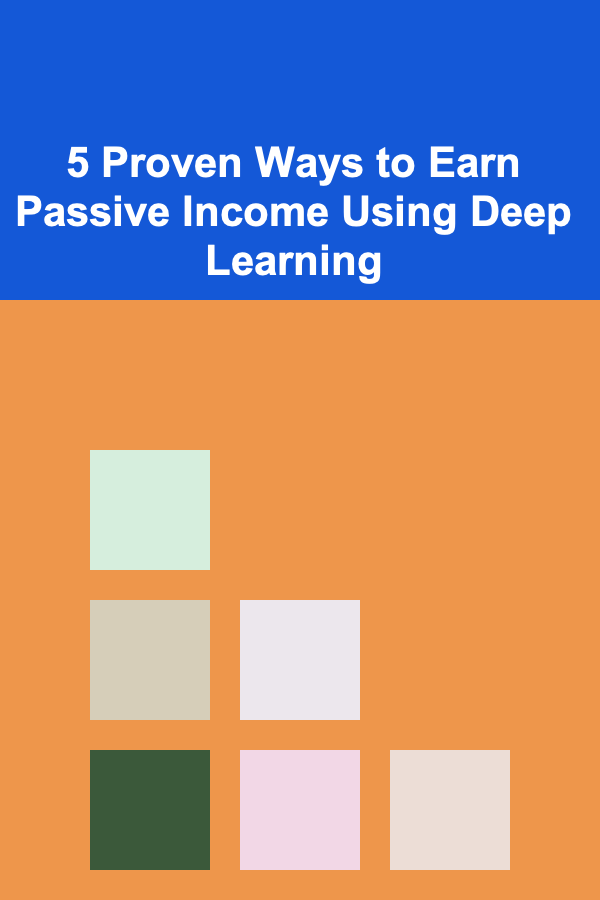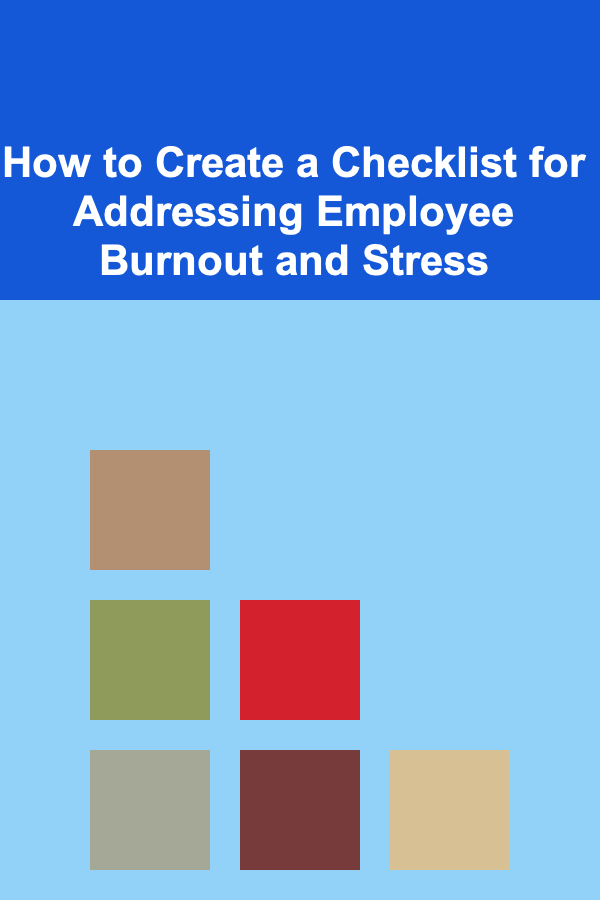
Finding the Best Resources for Any Skill: A Deep Dive
ebook include PDF & Audio bundle (Micro Guide)
$12.99$7.99
Limited Time Offer! Order within the next:

In today's rapidly evolving world, the ability to learn new skills is paramount. Whether you're aiming for career advancement, personal enrichment, or simply the joy of mastering something new, the right resources can make all the difference. However, with an overwhelming abundance of information available at our fingertips, navigating the learning landscape can feel daunting. This article provides a comprehensive guide to finding the best resources for acquiring any skill, regardless of its complexity or domain.
I. Understanding Your Learning Style and Needs
Before diving into the vast ocean of learning resources, it's crucial to understand your own learning preferences and needs. This self-awareness will significantly streamline your search and ensure you choose resources that align with your individual characteristics. Consider the following aspects:
A. Identifying Your Learning Style
Different individuals learn best through different modalities. Understanding your preferred learning style can dramatically improve your learning efficiency and retention. Common learning styles include:
- Visual Learners: These learners thrive on visual aids such as diagrams, charts, videos, and presentations. They benefit from seeing information presented in a structured and visually appealing manner.
- Auditory Learners: Auditory learners excel when information is presented through lectures, discussions, podcasts, and audiobooks. They learn effectively by listening and verbalizing concepts.
- Kinesthetic Learners: Kinesthetic learners learn best through hands-on experiences, practical exercises, and physical activities. They prefer active involvement and learn by doing.
- Read/Write Learners: These learners prefer learning through written materials, such as textbooks, articles, and notes. They learn effectively by reading, writing, and taking detailed notes.
Many individuals exhibit a blend of learning styles, so it's beneficial to explore different modalities and identify which combination works best for you. Numerous online quizzes and assessments can help you determine your dominant learning style(s). Remember, this is not about strict categorization but rather about identifying tendencies that can inform your resource selection.
B. Defining Your Learning Goals
Clearly defining your learning goals is essential for identifying relevant resources. Ask yourself:
- What specific skill am I trying to acquire? (e.g., Python programming, digital marketing, watercolor painting)
- What level of proficiency am I aiming for? (e.g., beginner, intermediate, advanced)
- What are my motivations for learning this skill? (e.g., career advancement, personal interest, problem-solving)
- What is my time commitment? (e.g., hours per week, duration of the learning process)
Specificity is key. Instead of "learning to code," aim for "learning Python for data analysis." A clear understanding of your goals will help you filter out irrelevant resources and focus on those that directly contribute to your desired outcome. This also helps in setting realistic expectations and tracking your progress effectively.
C. Assessing Your Current Knowledge and Skills
Before embarking on your learning journey, it's important to assess your current knowledge and skills related to the target skill. This will help you identify knowledge gaps and select resources that build upon your existing foundation. Consider:
- What prior experience do I have that might be relevant? (e.g., previous programming experience, artistic background, marketing experience)
- What are my strengths and weaknesses in related areas? (e.g., strong analytical skills but weak mathematical skills, good communication skills but weak technical skills)
- Do I have any specific learning needs or challenges? (e.g., dyslexia, attention deficit disorder, limited access to technology)
A honest assessment allows you to tailor your learning path to your individual circumstances. If you are starting from scratch, you'll need beginner-friendly resources that introduce fundamental concepts. If you have some prior knowledge, you can focus on more advanced materials that address specific skill gaps.
II. Exploring Different Types of Learning Resources
The learning landscape is diverse, offering a wide range of resources to cater to different learning styles and preferences. Here's an overview of some common types of resources:
A. Online Courses and Platforms
Online courses have become incredibly popular due to their accessibility, flexibility, and affordability. Platforms like Coursera, edX, Udemy, and Skillshare offer a vast selection of courses taught by experts from around the world.
- Coursera and edX: These platforms partner with universities and institutions to offer university-level courses, specializations, and even degree programs. They often provide certificates of completion, which can enhance your resume.
- Udemy: Udemy offers a wide range of courses on various topics, often at affordable prices. Many courses are self-paced, allowing you to learn at your own convenience.
- Skillshare: Skillshare focuses on creative skills, such as design, photography, and writing. It offers project-based courses that encourage hands-on learning.
- LinkedIn Learning: This platform provides professional development courses designed to enhance your career skills. It offers a wide range of courses on business, technology, and creative topics.
When choosing an online course, consider the instructor's credentials, the course curriculum, the reviews from other students, and the cost. Look for courses that align with your learning goals and offer opportunities for interaction and feedback.
B. Books and E-books
Books remain a valuable source of in-depth knowledge and structured learning. Both physical books and e-books offer a comprehensive and organized approach to learning new skills.
- Textbooks: Textbooks provide a systematic and detailed explanation of fundamental concepts. They are often used in formal education settings but can also be valuable for self-study.
- Practical Guides: Practical guides offer step-by-step instructions and real-world examples for applying your skills. They are particularly useful for learning hands-on skills.
- Reference Books: Reference books serve as a valuable resource for looking up specific information or concepts. They are useful for expanding your knowledge and understanding.
When selecting books, consider the author's expertise, the publication date (to ensure the information is up-to-date), the reviews from other readers, and the table of contents. Browse through the book at a bookstore or read sample chapters online to get a feel for the author's writing style and the book's content.
C. Websites and Blogs
Websites and blogs can provide valuable information, tutorials, and insights into various skills. They often offer free content and can be a great way to supplement your learning.
- Tutorial Websites: Websites like W3Schools, MDN Web Docs, and Tutorialspoint offer free tutorials on various programming languages, web development technologies, and other technical skills.
- Industry Blogs: Many experts and practitioners maintain blogs where they share their knowledge, insights, and experiences. Following relevant blogs can keep you up-to-date on the latest trends and developments in your field.
- Documentation Websites: For technical skills like programming, documentation websites are invaluable resources. They provide detailed information on APIs, libraries, and frameworks.
When using websites and blogs, be critical of the information you find. Verify the author's credentials and look for sources that are well-respected in the field. Be wary of outdated or inaccurate information.
D. Videos and Podcasts
Videos and podcasts are excellent resources for auditory and visual learners. They offer a dynamic and engaging way to learn new skills.
- YouTube Channels: YouTube is a treasure trove of educational videos. Many experts and organizations create channels dedicated to teaching specific skills.
- Online Video Platforms: Platforms like Vimeo and TED offer a variety of educational videos on diverse topics.
- Podcasts: Podcasts are a great way to learn while commuting, exercising, or doing chores. Many podcasts focus on specific skills or industries, offering insights and interviews with experts.
When selecting videos and podcasts, consider the presenter's expertise, the quality of the production, and the relevance of the content to your learning goals. Look for channels and podcasts that are well-respected in the field and offer clear and concise explanations.
E. Mentors and Coaches
Mentors and coaches can provide personalized guidance, support, and feedback. They can help you identify your strengths and weaknesses, set realistic goals, and stay motivated throughout your learning journey.
- Industry Professionals: Seek out professionals who have experience in the skill you're trying to acquire. They can offer valuable insights and advice based on their real-world experience.
- Teachers and Instructors: Teachers and instructors can provide structured guidance and feedback. They can help you understand fundamental concepts and develop your skills in a systematic way.
- Peers: Learning alongside peers can be a great way to stay motivated and learn from others' experiences. Consider joining a study group or online community.
When choosing a mentor or coach, look for someone who has the expertise, experience, and communication skills to effectively guide you. Be clear about your learning goals and expectations, and be open to feedback.
F. Communities and Forums
Online communities and forums provide a platform for connecting with other learners, asking questions, and sharing knowledge. They can be a valuable source of support and motivation.
- Online Forums: Websites like Reddit, Stack Overflow, and Quora host numerous forums dedicated to specific skills and topics.
- Online Communities: Many online courses and platforms have associated communities where students can interact with each other and the instructors.
- Social Media Groups: Facebook and LinkedIn host numerous groups dedicated to specific skills and industries. Joining these groups can help you connect with other learners and professionals.
When participating in online communities and forums, be respectful of others and contribute constructively. Ask clear and concise questions, and be willing to share your knowledge and experiences.
G. Hands-on Projects and Practical Experience
The most effective way to learn a new skill is often through hands-on projects and practical experience. Applying your knowledge in real-world scenarios helps you solidify your understanding and develop your skills.
- Personal Projects: Undertake personal projects that allow you to apply your skills in a creative and meaningful way.
- Volunteer Opportunities: Volunteer your skills to organizations or individuals who need your help. This can provide valuable experience and help you make a positive impact.
- Internships: Internships offer a structured opportunity to gain practical experience in a professional setting.
Don't be afraid to experiment and make mistakes. Learning from your mistakes is an essential part of the learning process. The more you practice and apply your skills, the more proficient you will become.
III. Evaluating and Selecting Resources
With so many resources available, it's important to evaluate and select the ones that are most suitable for your learning style, goals, and needs. Consider the following factors:
A. Credibility and Expertise
Ensure that the resource is created by a credible and knowledgeable source. Look for authors, instructors, or organizations with proven expertise in the field.
- Author/Instructor Credentials: Check the author's or instructor's qualifications, experience, and reputation.
- Source Reputation: Consider the reputation of the website, platform, or publisher.
- Peer Review: Look for resources that have been peer-reviewed or recommended by other experts in the field.
B. Content Quality and Relevance
Evaluate the quality and relevance of the content to your learning goals. Ensure that the content is accurate, up-to-date, and well-organized.
- Accuracy: Verify that the information is accurate and supported by evidence.
- Up-to-Date Information: Ensure that the information is current and relevant to the latest trends and developments.
- Clarity and Organization: Look for resources that present information in a clear, concise, and well-organized manner.
C. Learning Style Compatibility
Choose resources that align with your preferred learning style. If you're a visual learner, look for resources that incorporate visual aids. If you're an auditory learner, look for resources that offer audio lectures or podcasts.
D. Cost and Accessibility
Consider the cost and accessibility of the resources. Many free resources are available, but some require a subscription or purchase. Ensure that the resources are accessible to you in terms of location, technology, and time commitment.
E. Reviews and Recommendations
Read reviews and recommendations from other learners. This can provide valuable insights into the quality and effectiveness of the resources.
- Online Reviews: Check online reviews on websites like Amazon, Goodreads, and Course Report.
- Recommendations from Peers: Ask your peers or colleagues for recommendations.
- Social Media Feedback: Look for feedback on social media platforms and online communities.
IV. Creating a Personalized Learning Plan
Once you've identified potential resources, create a personalized learning plan that outlines your learning goals, timeline, and the specific resources you'll use. This will help you stay organized, focused, and motivated.
A. Setting Specific Goals
Break down your overall learning goal into smaller, more manageable goals. This will make the learning process less daunting and more achievable.
- SMART Goals: Set SMART goals (Specific, Measurable, Achievable, Relevant, Time-bound).
- Short-Term Goals: Focus on short-term goals that you can achieve within a week or a month.
- Long-Term Goals: Set long-term goals that align with your overall learning objective.
B. Establishing a Timeline
Create a realistic timeline for achieving your learning goals. This will help you stay on track and avoid procrastination.
- Allocate Time: Allocate specific blocks of time each week for learning.
- Set Deadlines: Set deadlines for completing specific tasks or milestones.
- Adjust as Needed: Be flexible and adjust your timeline as needed based on your progress and changing circumstances.
C. Choosing Resources and Activities
Select the resources and activities that will help you achieve your learning goals. Incorporate a variety of resources and activities to keep your learning engaging and effective.
- Combine Resources: Combine different types of resources, such as online courses, books, and hands-on projects.
- Active Learning: Engage in active learning techniques, such as note-taking, summarizing, and teaching others.
- Practice Regularly: Practice your skills regularly to reinforce your learning and develop your proficiency.
D. Tracking Progress and Adapting
Monitor your progress regularly and make adjustments to your learning plan as needed. This will help you stay on track and ensure that you're making progress towards your goals.
- Track Your Progress: Keep track of your progress by monitoring your performance on quizzes, tests, and projects.
- Identify Challenges: Identify any challenges or obstacles that you're facing and find ways to overcome them.
- Adapt Your Plan: Be willing to adapt your learning plan based on your progress and changing circumstances.
V. Maintaining Motivation and Overcoming Challenges
Learning a new skill can be challenging, and it's important to maintain your motivation and overcome obstacles along the way. Here are some tips for staying motivated and overcoming challenges:
A. Setting Realistic Expectations
Don't expect to become an expert overnight. Learning a new skill takes time and effort. Set realistic expectations and celebrate your progress along the way.
B. Finding a Support System
Connect with other learners, mentors, or coaches who can provide support and encouragement. Sharing your experiences and challenges with others can help you stay motivated and overcome obstacles.
C. Celebrating Successes
Acknowledge and celebrate your successes, no matter how small. This will help you stay motivated and build confidence.
D. Addressing Frustration and Setbacks
It's normal to experience frustration and setbacks when learning a new skill. Don't let these setbacks discourage you. Instead, view them as opportunities for learning and growth. Take breaks when needed, and don't be afraid to ask for help.
E. Staying Curious and Engaged
Maintain a sense of curiosity and engagement throughout the learning process. Explore different resources, experiment with new techniques, and challenge yourself to learn new things.
VI. Conclusion
Finding the best resources for learning any skill requires a combination of self-awareness, research, and a willingness to adapt. By understanding your learning style, defining your goals, and evaluating resources carefully, you can create a personalized learning plan that sets you up for success. Remember to stay motivated, seek support, and celebrate your progress along the way. With the right resources and a dedicated approach, you can master any skill and unlock your full potential.

5 Proven Ways to Earn Passive Income Using Deep Learning
Read More
How to Conduct a Thorough Inventory Assessment
Read More
How to Create a Checklist for Addressing Employee Burnout and Stress
Read More
How to Make Money Online as a Social Media Influencer: 10 Actionable Ideas
Read More
How To Practice Yoga for Greater Strength and Endurance
Read More
How To Interpret Ancient Political Systems
Read MoreOther Products

5 Proven Ways to Earn Passive Income Using Deep Learning
Read More
How to Conduct a Thorough Inventory Assessment
Read More
How to Create a Checklist for Addressing Employee Burnout and Stress
Read More
How to Make Money Online as a Social Media Influencer: 10 Actionable Ideas
Read More
How To Practice Yoga for Greater Strength and Endurance
Read More